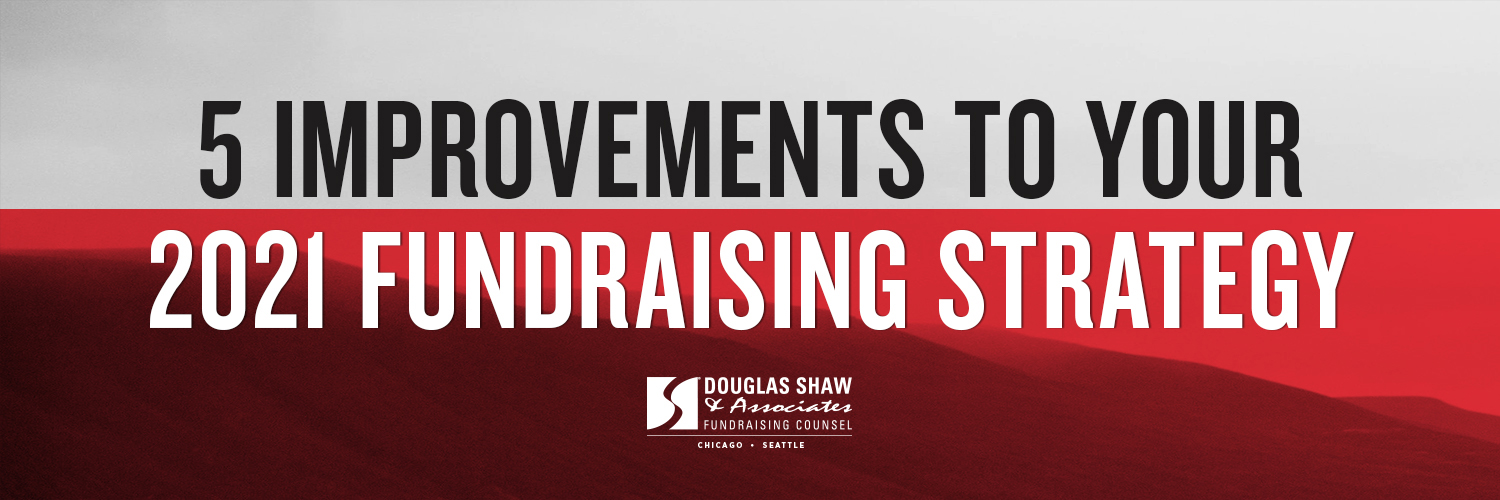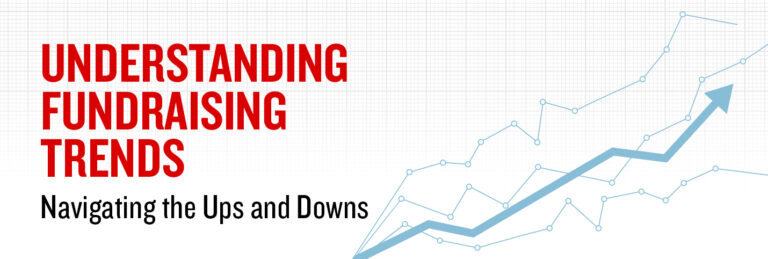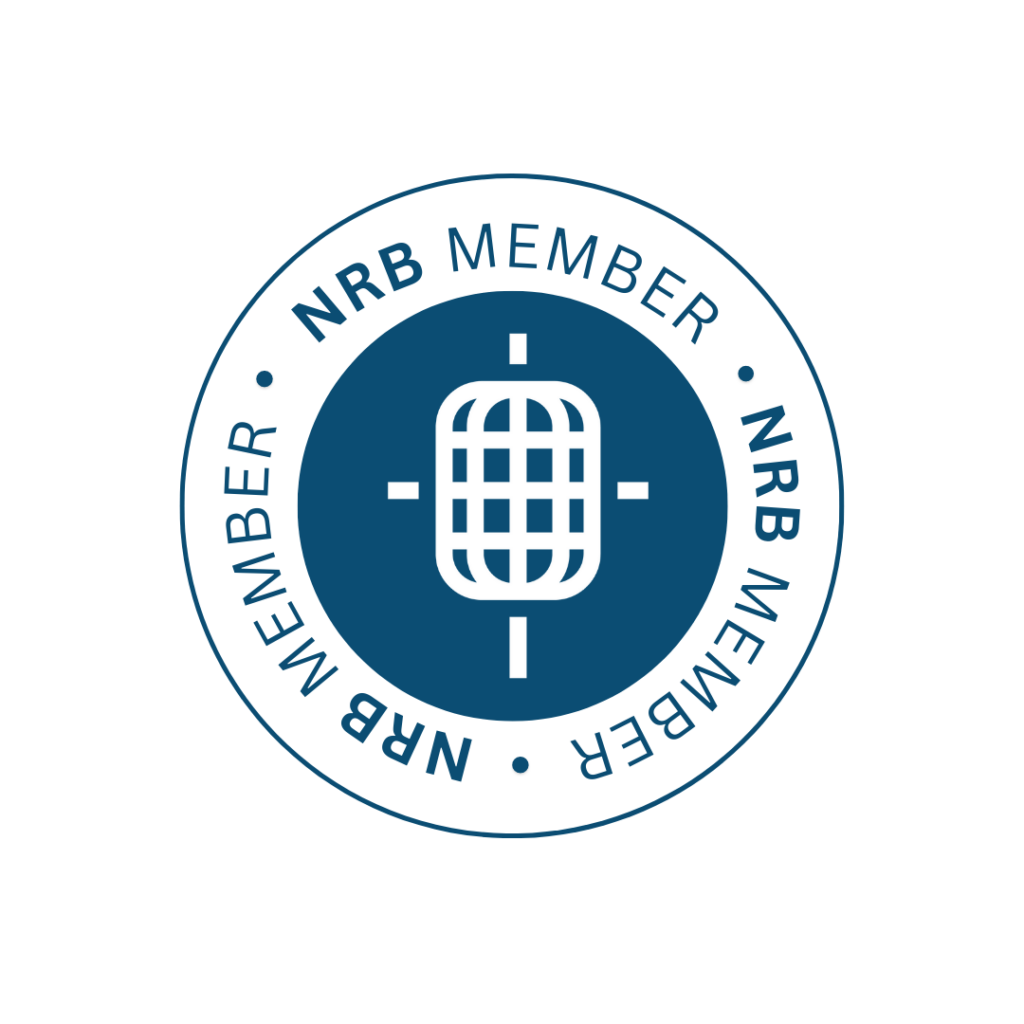5 Improvements to Your 2021 Fundraising Strategy
A new year presents the opportunity to put fresh eyes on how well you’re engaging your donors and connecting them to the impact their gifts are making. Take a moment to evaluate these five areas to strengthen the bond with your donors.
- First, look back
Look at your communications log to review what your donors heard from you in 2020. What did you ask them to do? What did you report back? What were the results?
Action Step: Map out the past year of donor communications on a large whiteboard (or pull out your 2020 marketing calendar). Color code appeal letters, e-appeals, social posts, newsletters, website banners, etc. for date, topic, and call to action. Overlay the results of donor response to identify patterns. What resonated most with your donors? What worked? What didn’t?
- Make your 2021 plan
Create your 2021 plan based on your review. If you aren’t sure whether donors will be willing to attend large events, plan for alternative engagement. Keep your eye on the metrics showing new donor activation for subsequent gifts and the retention of existing donors so you can detect any changes in donor giving early on.
Action step: Use the research from your 2020 review to make strategic adjustments to your 2021 plan based on what worked. Balance asking, thanking, and showing impact. Identify key metrics to monitor.
- Give the donor a front row seat
Does the explanation of your work feature your organization as the primary driver, supported secondarily by the donor whose only connection is to pay the bills? Consider the reality that people have been sharing personal resources to make good things happen for centuries. People are hardwired to be philanthropic, and they’ll give to you or to somebody else—but they will give where they are valued.
Action step: Take a marker and circle the pronouns in a recent newsletter—is the lead article filled with “we, us, our” when describing the work? Consider changing the wording to “you” and “your” so that the donor sees themselves as the one making a difference in the lives of beneficiaries.
- Critique the quality of your thank you messages
Do you thank well? Hint: a receipt verifies a transaction; it doesn’t constitute a thank you. Set high expectations for creative expressions of gratitude. Don’t be formulaic. Don’t recycle old clichés with a new date.
Action step: Pull out your most-recent digital and printed thank you letters. Are they heartfelt? Would it make your grandma smile?
- Champion the impact the donor is making
Donors often bring up that they didn’t feel appreciated and don’t know how their gift was used. What impact did their gift make? A word of advice here: show evidence of the outcome, not just the output. Rather than: “your gift helped pay for a teacher to tutor a student in reading,” say, “your gift came to life when seven-year-old Alicia read out loud for the very first time.” What is the evidence of your program’s success, as seen in the life of the beneficiary?
Action step: Look at the print and digital pieces from 2020 (see point #1). How many describe program activities? How many show testimonials of life change? Does the donor see evidence of their money in lists of activities or through the eyes of someone whose life has been improved?
There’s a lot we don’t know about 2021. What we do know is that donors will continue to do good in the world by choosing to share their resources with charitable organizations. Resolve to validate your donors’ generosity. Walk the road and adapt together as 2021 unfolds.
Related articles
-

More Than Just Work
As a young Christian professional navigating the conundrum of aligning my beliefs into a purposeful career, I’ve been blessed to…
-

What to Think of Artificial Intelligence and Its Impact on Fundraising . . .
In trying to summon an image to represent our theme for this issue of Donor Focus, I found myself drawn…

